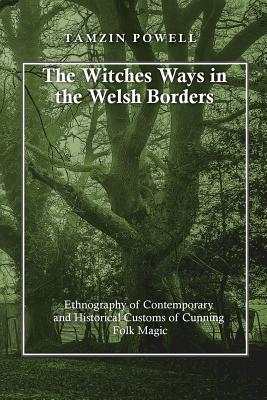"This is a delightful and fascinating study of practitioners who currently engage in a cluster of important traditions of spirituality, in an especially beautiful and numinous part of Britain." Professor Ronald Hutton.
Local cunning folk and witches as practitioners of traditional magic, healing, ritualistic ceremonies and customs have been part of the Welsh Borderlands around the Wye Valley and Forest of Dean for many centuries and their ways have often come down from the ancient past. This book will take you on a journey where the greenwood, spirituality, ritualised practices, lifestyle and folklore will all come together to form the basis of an anthropological look at the cunning-folk ways, an ancient and contemporary analysis of Witchcraft with new historical evidence, and contemporary interviews with practitioners of magic.
It is about pagans and the continuity of a cunning practice in the author's locale, one which is still practiced today. The author discovered new evidence suggesting that local cunning folk engage with ancient practices of Celtic deity worship involving an early British Goddess and her consort. The term 'Wiccan' (with two C's), often used to describe 'most' witch practitioners today, has been misunderstood for years and is expressly distinct from contemporary cunning folk and witches who are of a 'Wican'(with one C) tradition. The nature of this surprising distinction is discussed and evaluated.
This book conveys the history of practitioners of Magic and Witchcraft in the borderlands of England and Wales (Albion and Cymru) from as far back as the fourteenth century. It is the first contemporary academic study ever done on cunning folk living in this locale. Most primary written evidence of witchcraft has been handed down from nineteenth- and early twentieth-century writers. However, one rarely known writer, Margaret Eyre, who lived in the Wye Valley in the nineteenth century, made unique records of interviews identifying ancestral, familial, and local attachments to cunning folk. Much of this information did not come to light and was therefore never acknowledged by writers until this author discovered some rare archives of The Folklore Society. Little is known of Eyre's role in The Folklore Society but she was the key to unlocking the secret occult history of this area and uncovering its continuous local tradition of witchcraft.
